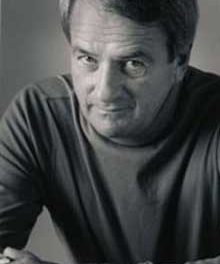 Lowcountry Weekly is pleased to announce the winners of the 5th Annual Sea Island Spirit Writers Short Story Contest. Participation, like last year, was wonderful! The writers were asked to include the phrase “a skewed perspective” in a story limited to 750 words. The stories were judged by members of the Sea Island Spirit Writers, including Donna Armer, Katherine Tandy Brown, Deb Duer, Ginny Hall-Apicella, and Ellen Kelley. Thanks to everybody who entered a short story this year, and congratulations to the winners!
Lowcountry Weekly is pleased to announce the winners of the 5th Annual Sea Island Spirit Writers Short Story Contest. Participation, like last year, was wonderful! The writers were asked to include the phrase “a skewed perspective” in a story limited to 750 words. The stories were judged by members of the Sea Island Spirit Writers, including Donna Armer, Katherine Tandy Brown, Deb Duer, Ginny Hall-Apicella, and Ellen Kelley. Thanks to everybody who entered a short story this year, and congratulations to the winners!
1st PLACE $100
The List by James Moss, Pittsburgh, PA
2nd PLACE $50
The Painting by John McIlroy, Bluffton, SC
3rd PLACE $25
Lake Trout by Vivian Bikulege, Beaufort, SC
HONORABLE MENTIONS $20
ID-ing the Doe by Tom Bixby, Beaufort, SC
Bob and Bart by Steve Teets, St. Helena, SC
And now, without further ado . . . the top three winning stories.
THE LIST
By James Moss
Tate found his rock, sat down and took the flask from his satchel to pour himself some tea. From where he was, he could just about see the whole island. It had been Laura’s favorite spot. He sipped his tea and took a list from his jacket pocket. It read:
– Tennyson’s (4 ¼”)
– Pharmacy
– Fix Gutter
Setting down his tea he took a stubby pencil from another pocket and thought about adding a fourth item. He decided against it. He put the list and the pencil back in his pocket and looked out over the ocean. There was a light breeze pushing clouds around. It was a fine day.
Tennyson’s was the kind of hardware store you could find almost anything. Hayward, Tate’s oldest friend, started the place. He still worked there, but his son ran it. When Tate arrived, Hayward was idle except for keeping an eye on a couple of young boys. Tate was a welcome diversion.
“That’s an odd size for a gutter bracket, Tate,” he said, “You sure?”
“Measured it twice.”
“Can’t promise anything, but I’ll look.” He headed out back and returned a few minutes later with a bracket that he slapped down on the counter. “Last one in the place. Must be left over from the last time you wanted one.”
“I guess. How much?”
Hayward did some ciphering on a paper bag with the pencil from behind his ear, “A buck seventy-nine with tax.”
“You know the register will calculate that.”
“Then what’ll Ido?”
As Hayward counted out the change, Tate said, “Hayward, can you take off for ten minutes? Coffee at Mable’s?”
“Sure,” said Hayward, “Let me find junior. I’ll see you there.”
Tate picked up his prescription from the pharmacy then headed over to Mable’s and settled into a booth.
“Be right there,” said a voice from the back.
Maybe it’s odd that a man would fix a gutter when he’s expecting to die, thought Tate. But you can’t break the habit of a lifetime. Death’s coming anyway. It would look no different if you fixed the gutter and had a heart attack the next day. You’d never do anything if you were afraid death would cheat you of it. And from the skewed perspective of an old man who always did everything for himself, death was just another chore to schedule. It would be OK. Eighty-three is long enough.
“You waitin’ for Hayward?” asked Mable, a small, bustling woman. “What you two old coots up to?”
“Just gettin’ coffee.”
“You two never just gettin’anything.”
Hayward and the coffees arrived about the same time.
“Thanks Mable. You look radiant,” said Hayward, sliding into his seat. Mable set the coffees down with a growl and turned to clear a neighboring table. Hayward tilted his head silently towards Mable and Tate chuckled.
“Thanks for getting me out from behind that counter. Been a slow day.”
“Makes a change,” said Tate deadpan, and sipped his coffee. They’d been friends for over seventy-five years, from grade school. There wasn’t much they didn’t know about each other and even less they wouldn’t do for each other. Hayward was about to start on one of his stories, but Tate interrupted him.
“I chose a date.”
Hayward fell silent and stirred his coffee. Then, raising his voice, “Mable, can I get some sugar?”
“Aren’t you gonna ask when?”
“I was hoping I hadn’t heard right.”
Mable dropped off the sugar. “Didn’t think you took sugar.”
“I don’t.” He spooned in two heaps of sugar. “Why now?”
“Winter’s coming. Doctor says my eyes are gonna fail in a few months. Hip needs replacing. I’m tired of it.”
“Sounds like life.”
“Of sorts. But it’s a thin life. Laura’s not coming back and I don’t think I have the time left to ever stop missing her. It wears on you.”
“Aint I enough?”
“Hayward, you kept me going this long. Without you, I’d have done it years ago.”
Hayward didn’t say anything, but with every sip of coffee he held the mug up a little longer to hide the pain in his face. He’d agreed years before to play a role in Tate’s plan and knew this day would come. He was to discover the body and make sure they found the note.
“Next Monday,” said Tate.
“You know I’ll be in the store. Why not the weekend?”
Tate shrugged.
“Of course,” said Hayward finally. “You got to fix the gutter.”
THE PAINTING
By John McIlroy
Maddie Cheever tilted her head back, then sideways. “Too low, and crooked.”
“You sure? People hang paintings too high.” But Taylor Longworth Cheever — Tadto everyone but his wife of almost nineteen years — knew when to let things slide. He removed the painting, pounded in a new nail, then rehung it a few inches higher, centering it precisely above a tall vase on the foyer table.
“Better?”
“Yeah. She’ll like it there.” Maddie brushed some dust off the gilded frame. “And I’ll put some hydrangeas in the vase, just her favorite blue ones from the garden. She’ll like those too.”
Tad tried to smile: He had not wanted to hang it at all.
Maddie completed the work years ago. A boxy composition, it showed an old car — a 1946 Ford Woody, for those in the know — sitting in front of a white shingle-shake carriage house. She had done a nice job painting the car’s distinctive dark mahogany door panels, along with the gold scripted Cheever Timberon the driver’s side door. A young girl leaned out an open dormer window of the house, her long blond hair just brushing the sill.
Although the work had a primitive charm, like a Grandma Moses townscape, the angles were all wrong. Most alarmingly, a skewed perspective — the L-shaped house seemed to be hurling off to different vanishing points at the horizon — threatened its simple artistic integrity.
* * *
Tad Cheever had always been boarding-school rich, swimming in old southern timber-money and trust funds, and spending his summers at his family’s private hunting lodge near Squirrel Creek, Georgia.
Maddie Weeks had never been rich, at least until her marriage. Her father still managed the lodge, with her mother cooking for the Cheever clan. Ask around, and folks will tell you no one makes Brunswick stew like Jennie Weeks. Maddie was raised on the second floor of the property’s carriage house, her dormer bedroom directly above the stall where the Ford was garaged. She was two months younger than Tad, strong-willed and country-smart, her hair the deep-red of a rust-streaked tin roof, her eyes large and jade green, flecked with gold, and she grew up sassy and fast among the soft whispers of the tall Georgia pine.
In the summers, she would lean out her bedroom window and watch Taylor — she never called him Tad, even as a child — wash the Ford in a shady area next to the house.
It wasn’t long before he started to notice Maddie Weeks, too.
A week after her eighteenth birthday, on an old blanket spread unevenly in the back of the car and smelling of stale wool, they made fumbling, desperate, forever love.
And it was there, on a rainy afternoon seven weeks later, that she told him she was pregnant.
* * *
Maddie stared at the painting. “I don’t think I got Caroline’s hair quite right, do you?”
“You did fine, Maddie.”
“But she’ll understand, won’t she?”
Tad reached out to her, but she was already walking away.
* * *
“How’s she doing, Tad?” The voice on his phone was tired, the conversation practiced and sad.
“About the same,” He paused. “No, mother. The truth is, it’s a bad day.” He hesitated. “She wanted it up again.”
“But didn’t they tell you the painting would only ———“
“Yeah, they did.” He hesitated, unsure of what to say. “You know we all loved the carriage house, Caroline the most — poking around the place, listening to her grampa’s stories, tasting her nana’s cornbread, always asking about the Ford.” Tad’s voice broke.” One day, she looked at me funny, then said: in the Woody? Really? She was all giggles, but growing up so fast.”
He looked at a photo of his daughter on his desk, taken three years earlier at a birthday party in the garden of their Charleston home.
It was her sixteenth, and her last.
“Caroline loved posing for the painting, mother. She told me once that she closed her eyes and thought of her mom in that very window on a hot Georgia summer day, just reelin’ in — that’s what she said— just reelin’ in that richCheever boy. . . . “
Taylor Longworth Cheever — still a rich man, folks say — put down the phone.
Out the window of his study he saw his wife in the garden, cutting only hydrangeas of the brightest blue.
LAKE TROUT
By Vivian Bikulege
The cottage is decorated with Applefest posters – 1983, 1984, and 1985. Outside, a slow sun rises over Lake Superior, and geese, plodding along the shoreline, stretch, wings flapping between scattered honks, different from Lydia’s bedside alarm at home. In the corner of the room, orange light rolls over concrete logs creating a skewed perspective of a burning fire. She is snug in a fleece blanket. Underneath her skin, she is restless.
Jeremy slogs in from the bedroom.
“Thanks for making a pot.”
“You’re welcome. Good morning.”
“Morning.”
Jeremy flips the light switch. Lydia hears him take a mug from the cabinet, pour coffee into his cup, and hunt for creamer in the refrigerator. The air fills with the stew of ground Colombian beans. He leaves to pee. Why didn’t he do that first? Back in the kitchen, he reaches for the cooling coffee, turns off the light, and goes back to bed to savor caffeine, and read.
So, this is what it’s become? Summer spent in different rooms. Jeremy lost in another book. Lydia trying to write one. Even Pepe, their pocket Yorkie, is curled on pillows in the spare bedroom, snoring, not wanting his Science Diet, or a cuddle in the glow of the chattering electric fire.
“I’ll take a walk,” Lydia murmurs to the white rocking chair, a patchwork quilt, detailed in apple appliqués (of course), slung over its back.
Across the road from Orchard View Cottages is a sandstone building with yellow cedar shingles built in 1897. The Fish Hatcheryis painted in an arc on the facade. Behind it, a modern birthing center for fish. Lydia wanders into the cool, dark building. Long concrete tanks extend below the platform. The whir of pumps, pushing hundreds of gallons of water from the lake, echoes.
“Hello,” a voice twelve feet below rises. A bearded man looks up from an area tagged “Egg Incubation Chambers.” The air is sweet, not fishy, and a single light shines on the man.
“Hello to you.” Lydia bends over the rail in polite acknowledgement.
“I’ll come up.”
Dressed in a burgundy Carhartt tee shirt and tan ball cap, a hulk of a man trudges up two flights of stairs.
“Can I help you?”
“Just looking around,” Lydia answers. “I wanted to see what goes on here.”
“Want a tour?”
“That would be great!”
“Most of our tanks are empty. We release fish in May and June.”
“My name’s Lydia. What’s yours?” Lydia reaches to shake hands.
“Darren.”
“Thanks tons, Darren.”
In the last holding tank, schools of brown-green fingerlings dart in clear water.
“What are they?” Lydia asks.
“Lake trout. Want to see a video on how we get the eggs?”
“Would it be a lot of trouble?”
“Nah. Let’s go to my office. Ignore the mess.”
Lydia follows Darren into a room paneled in knotty pine with trout mounted on driftwood hanging on the walls. The video shows men separating fish from gill nets, measuring them, squeezing eggs from female fish into a pail, and fertilizing them with sperm squeezed from males.
“Not incredibly romantic.”
“Yeah, well, I’m not sure fish areromantic. Why are you here at 8 in the morning?”
“Getting air. Getting out of the house.”
“I’ll tell you something about lake trout in the wild.” Darren leans back in his chair. Lydia sits down, ready for the secret. “When lake trout are ready to spawn, they move to shallow, rocky shoals from deep, dark water. It’s a struggle. Effort, not romance, works for these fish.”
Lydia grins.
The lake is shimmering blue when she returns to Cottage 2. Lydia walks through the screen door, and back to the bedroom. Jeremy is dozing, his coffee cup empty, his book on the floor. Pepe is still curled up, unalarmed. Some watchdog.
Lydia undresses, and climbs into bed. She pushes against Jeremy’s back and wraps an arm around his warm chest.
“Morning,” she whispers to the back of his head, pushing her pelvis into his buttocks.
“What’s up?” he growls.
“I took a walk to the hatchery. Learned something.”
“What?” Jeremy turns over, his breath heavy with coffee remnants.
“I want us to be different. I want intimacy not just routine.”
“Is that how you see us?”
“Kinda. Let’s be like lake trout. Work a little harder. Go deeper, and maneuver the rough spots.”
“I don’t know what you’re talking about.” Jeremy pulls Lydia close, and kisses her.
It didn’t matter if he understood. It was already happening.







